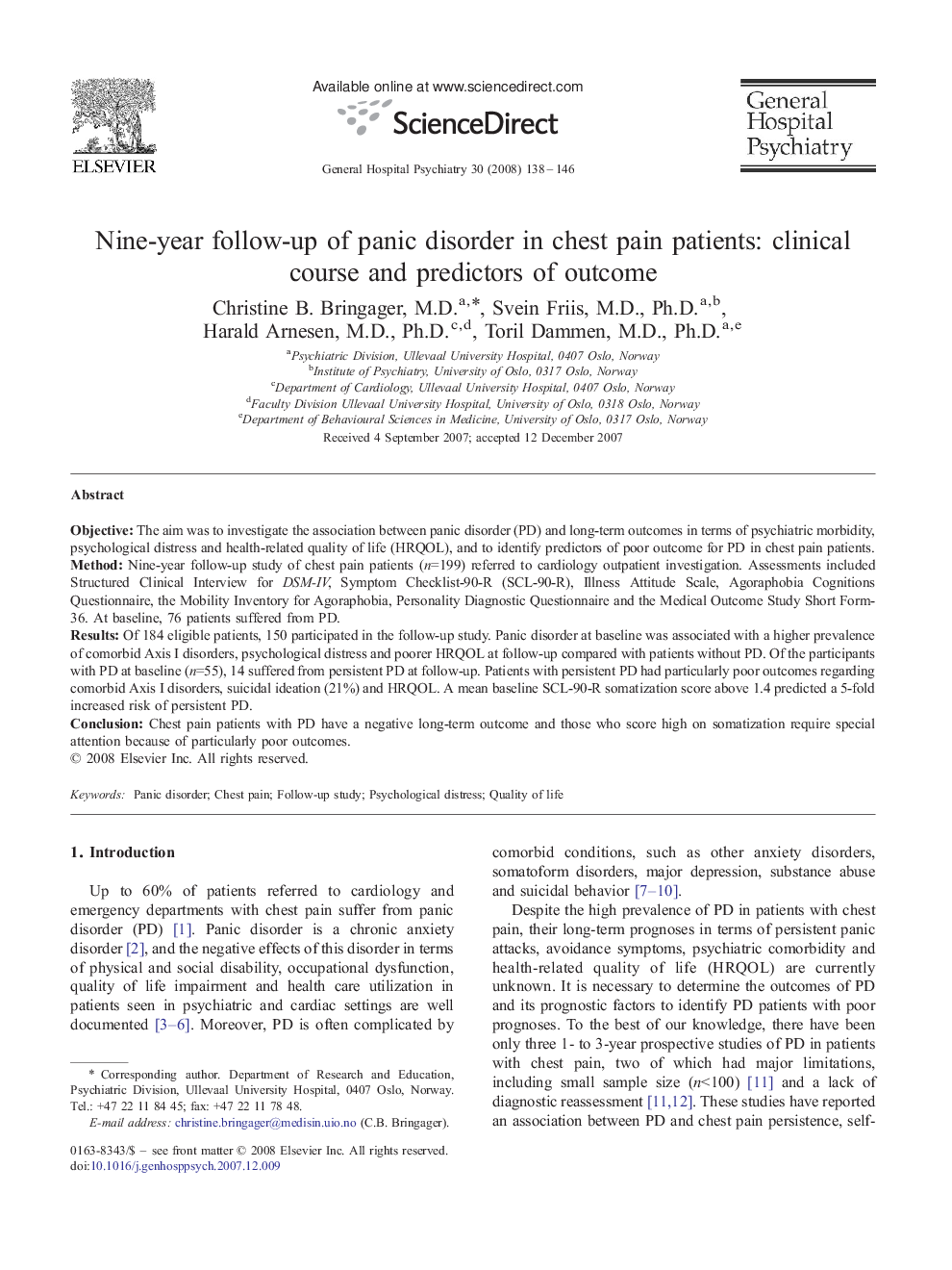| Article ID | Journal | Published Year | Pages | File Type |
|---|---|---|---|---|
| 3238278 | General Hospital Psychiatry | 2008 | 9 Pages |
ObjectiveThe aim was to investigate the association between panic disorder (PD) and long-term outcomes in terms of psychiatric morbidity, psychological distress and health-related quality of life (HRQOL), and to identify predictors of poor outcome for PD in chest pain patients.MethodNine-year follow-up study of chest pain patients (n=199) referred to cardiology outpatient investigation. Assessments included Structured Clinical Interview for DSM-IV, Symptom Checklist-90-R (SCL-90-R), Illness Attitude Scale, Agoraphobia Cognitions Questionnaire, the Mobility Inventory for Agoraphobia, Personality Diagnostic Questionnaire and the Medical Outcome Study Short Form-36. At baseline, 76 patients suffered from PD.ResultsOf 184 eligible patients, 150 participated in the follow-up study. Panic disorder at baseline was associated with a higher prevalence of comorbid Axis I disorders, psychological distress and poorer HRQOL at follow-up compared with patients without PD. Of the participants with PD at baseline (n=55), 14 suffered from persistent PD at follow-up. Patients with persistent PD had particularly poor outcomes regarding comorbid Axis I disorders, suicidal ideation (21%) and HRQOL. A mean baseline SCL-90-R somatization score above 1.4 predicted a 5-fold increased risk of persistent PD.ConclusionChest pain patients with PD have a negative long-term outcome and those who score high on somatization require special attention because of particularly poor outcomes.
